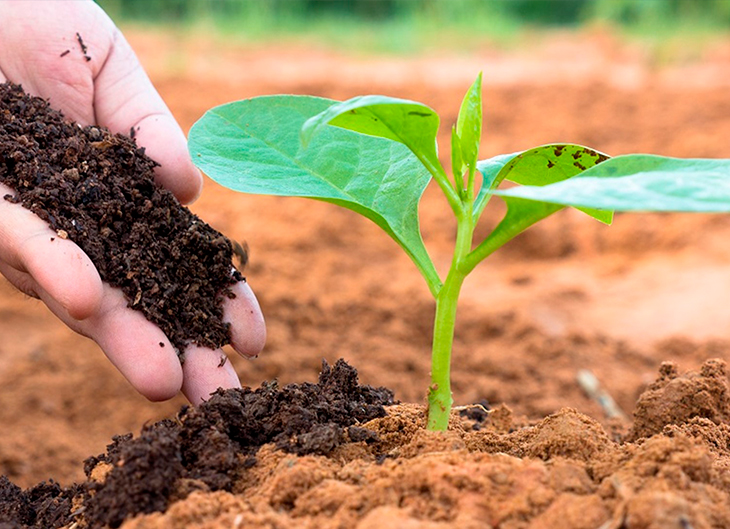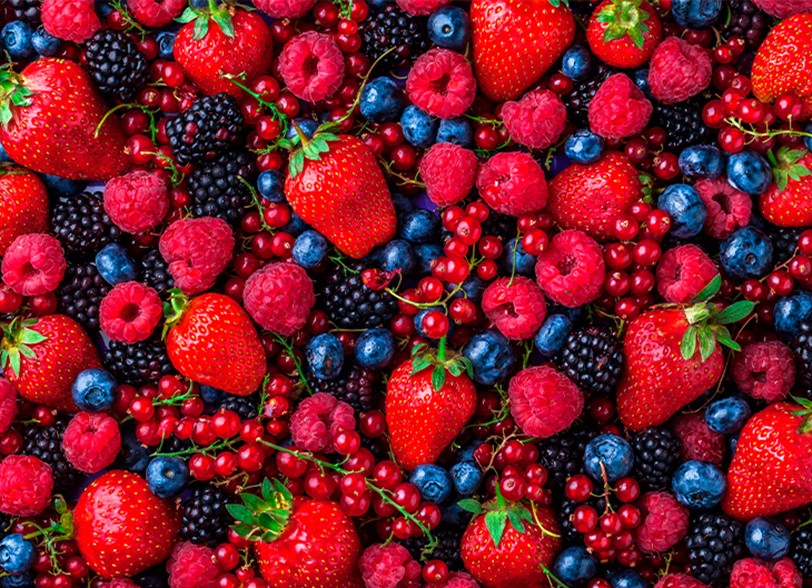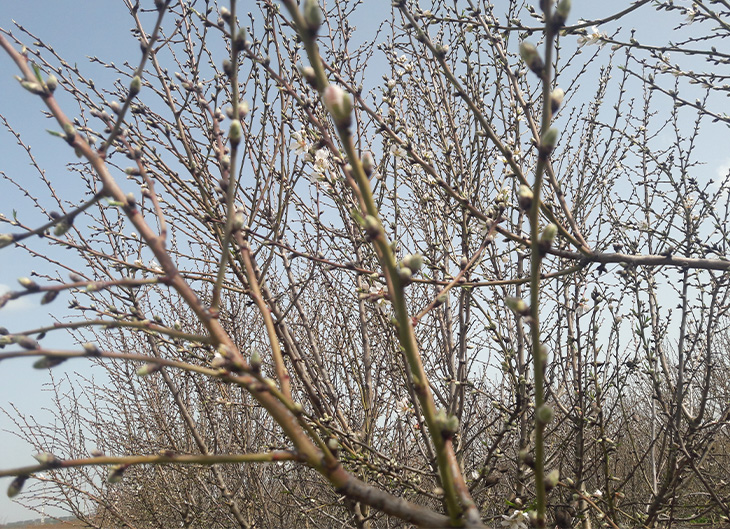
Floral induction and differentiation in nut crops
In nut crops, as with fruit trees, the buds that give rise to flowers and shoots are formed in the year before the period in which they develop, distinguishing several processes, initiation of induction and floral initiation and, subsequently, floral differentiation.
Floral initiation can be considered the beginning of the induction process and comprises the cell division and elongation that give rise to the development of shoots, which can be vegetative (leaves), reproductive (flowers) or mixed (leaves and flowers in the same floral structure). Initiation is defined as the beginning of the development of shoots, regardless of the type of these.
Floral induction is the complete evolutionary physiological process that occurs in the first weeks after flowering by which the buds of fruit trees, originally vegetative, undergo metabolic changes that prepare them to transform into flower buds (Buban and Faust, 1982; Faust, 1989).
Floral induction consists of two fundamental phases: a reversible one, during which the interruption of the inducing factors cancels the reproductive programming of the buds, and another irreversible, in which the endogenous evolution is altered (Faust, 1989; Gil, 1992; Pessarakli, 2001). The induction becomes irreversible about four to five weeks before the morphological change or floral differentiation begins. For this process to be carried out, a stimulus is needed that provokes in the meristems the floral evocation.
After a short period, this physiological change is followed by another morphological and anatomical, which leads to the appearance of floral primordia, receiving the name of floral differentiation (Gil-Albert, 1991), that is, it is the external manifestation of the induction process.
The first symptom of this differentiation is the flattening of the apical meristem followed by the appearance of the primordia of sepals, as well as the differentiation of the primordia of the petals, stamens and, finally, the carpels (Benlloch et al., 2007).
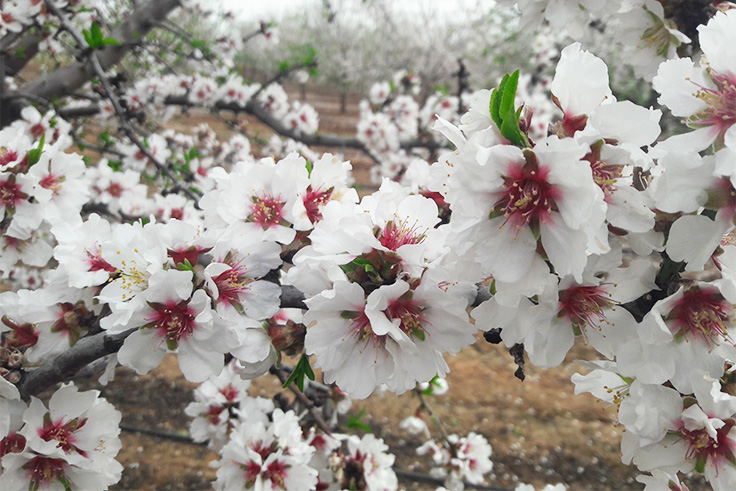
Factors influencing flowering
There are a number of factors that, as they are managed, influence the next flowering due to their ability to regulate floral induction and differentiation. These factors can induce or inhibit these processes, as well as affect the quality of the flower (Felipe, 2000). Among these factors we can find:
- – environmental conditions:
- – length of day and night.
- – temperature.
- – light intensity.
- – the availability of wáter.
- – the nutritional contribution.
- – the influence of phytohormones.
- – the reserve content of the plant.
- – cultural practices.
- – the appearance of stresses of both biotic and abiotic origin.
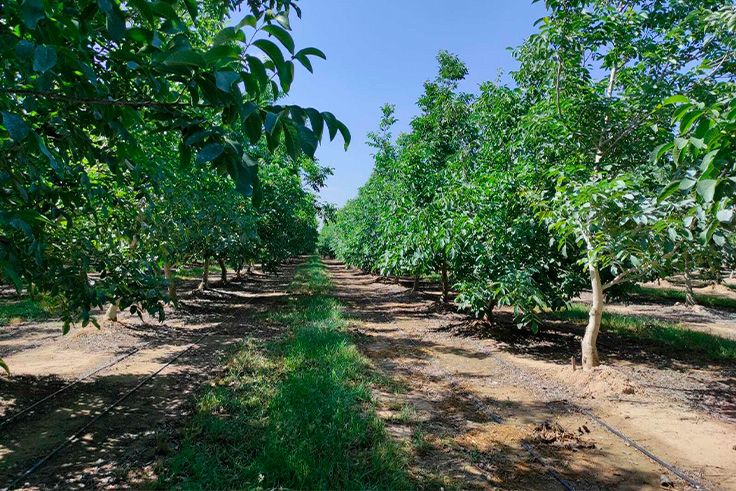
In this sense, Agrométodos recommends the realization of a BROTOMAX® treatment after the harvest of the fruits.
BROTOMAX® post-harvest application
BROTOMAX® is an inducer of natural substances of defense, antioxidants and regenerators of plants, with nutritional capacity. It is a product rich in energy and easily assimilated by leaves, branches and roots, with ascending and descending systemic action causing a great movement of sap within the plant that generates a balance between the aerial and root part.
The application of BROTOMAX®:
- – Improves floral differentiation and its subsequent setting generating a greater productive potential by:
- – regulate and balance flowering, with respect to vegetative buds.
- – increase the content of reserves (higher content of sugars in flowers) that favors the improvement of the setting of viable flowers.
- – Increases the content of phenolic compounds in plants making them more resistant to biotic and abiotic agents.
- – Improves and accelerates wound healing after harvesting, extending the productive life of the crop.
- – Stops the secretion of rubber in the wounds produced in the trees.
- – It causes a nutritional contribution to the plants of macro and micronutrients.
It should be noted that its application affects the biochemical modulation of phenolic compounds and allows nature to regulate and balance their action.

